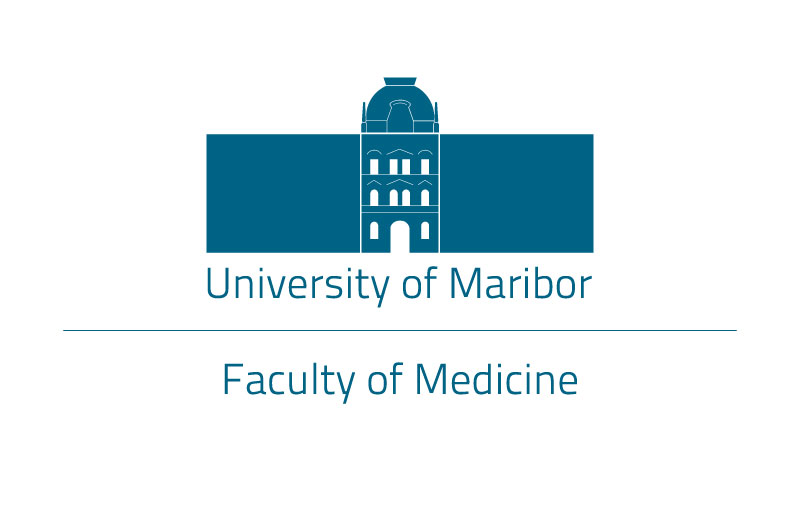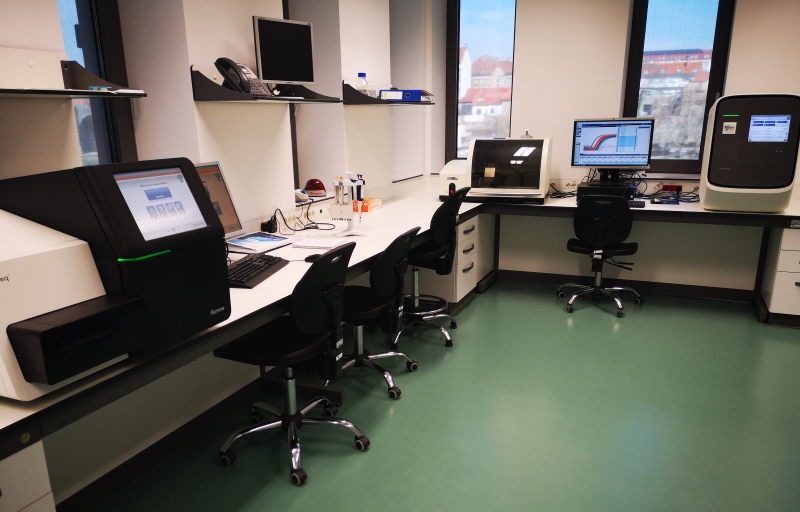
|
|
| Address | Faculty of Medicine University of Maribor Taborska ulica 8, SI-2000 Maribor, Slovenia |
|---|---|
| Platforms | Biomarkers |
Center for human molecular genetics and pharmacogenomics (CHMGF) was founded in 2005 at the Faculty of Medicine, University of Maribor. The major goal of the CHMGF is to achieve scientific excellence in human genome research and to foster the translation of new technologies and discoveries in the field of human genome research into clinical practice. The specific aim is to enhance interdisciplinary approach combining molecular biology, molecular genetics, population genetics, genomics, pharmacogenomics and bioinformatics with clinical and epidemiological studies. Our research focuses on the identification of genetic risk factors for common complex diseases such as inflammatory bowel diseases (Crohn diseases and ulcerative colitis), rheumatoid arthritis, asthma, and cancer.

The focus of pharmacogenomic studies is the identification of a correlation between DNA polymorphisms and treatment response in order to develop molecular and genetic biomarkers for efficient personalised therapy with the least side effect. CHMGF conducts several courses for undergraduate and postgraduate students at the Faculty of Medicine, University of Maribor. CHMGF provides infrastructure and mentorship support for PhD thesis performed mostly by PhD students taking courses in Biomedical technology program at Medical Faculty UM. Many Ph.D. students are medical doctors doing their molecular part of their Ph.D. thesis as part of the CHMG research projects.
Center collaborates with national, European and USA academic research and clinical institutions.
Maribor University offers:
- Biobank: The advantage of our biobank is that we have isolated several biological samples from the same patient, including DNA, RNA, proteins from PBL, blood plasma, erythrocytes and where available also tissue samples (colon biopsies, tumors,..). Comprehensive clinical data, including treatment response data. Currently, our biobank has enrolled more than 6000 Slovenian patients for more than 20 different diseases, including chronic immune diseases, including Inflammatory bowel disease (Crohn’s disease, ulcerative colitis), asthma, rheumatoid arthritis, multiple sclerosis, celiac disease, osteoarthritis, chronic kidney disease), neurodegenerative diseases (Parkinson), cancer (breast, colorectal, head and neck, uterine), familial hypercholesterolemia, etc. New patients and new diseases are being added regularly. For many patients several blood samples were collected before and after several time points during therapy.

- Next-generation sequencing NGS facilities (MiSeq, NextSeq-in progress);
- High-throughput genotyping (Illumina I-scan-in progress);
- Transcriptomics (NGS for RNAseq, (QuantStudio™ 12K Flex system));
- Proteomics (nHPLC-HRMS, Western Blot, Immunoprecipitation, Immunofluorescence);
- Developed functional cell models to study molecular mechanisms of drug (non) responsiveness, currently focused on biological drugs in autoimmune diseases, including anti-TNF therapy in Crohn disease and omalizumab in asthma; functional models developed are based on cell lines and primary cells; co-culture models using epithelial cells and blood cells; Laboratory infrastructure for cell work, including Flow cell cytometry (Amnis), Cell sorter (in progress);
- Advanced bioinformatics for systems medicine approach using the integration of omic data, genetic (NGS, GWAS), gene expression (RNAseq), proteomic, epigenetic (DNA methylation) and gene regulation (non-coding RNA profiling, splice variants) data with bioinformatic tools (gene ontology-GO) to identify and describe biological pathways important in treatment response and to develop biomarkers and predictive models (using machine learning approaches) for personalised medicine.
















